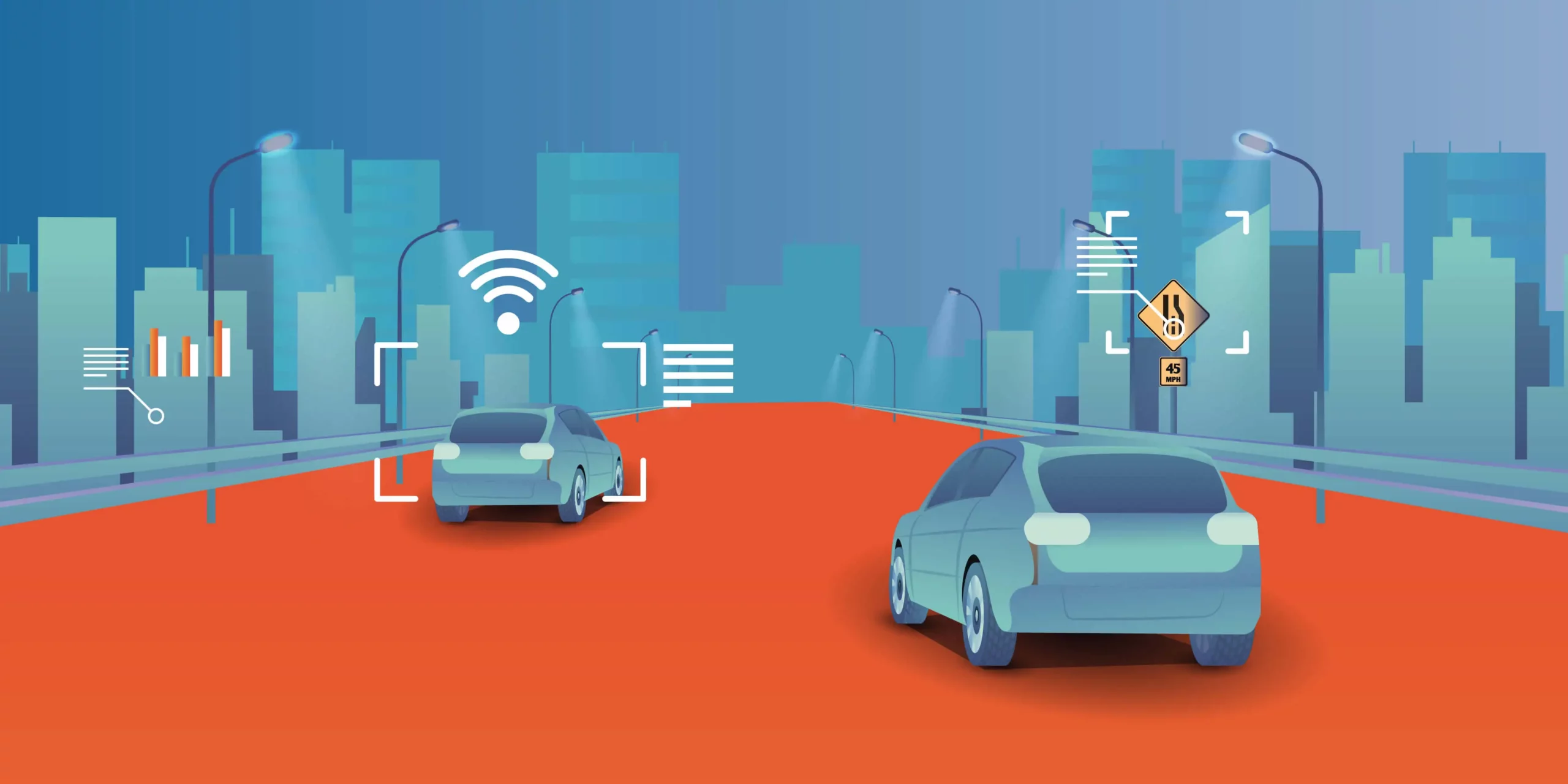AI finds its use in a wide range of applications like marketing, automation, transport, supply chain, and communication, to name a few. From cutting-edge research to real-world applications, here we will investigate the most executed artificial intelligence projects. This article will assist you to discover plenty of fascinating ideas and insights to inspire you, whether you are a tech fanatic or want to know about the future of AI. Artificial intelligence has had a profound impact on our daily lives, and we employ AI whenever you look through social media, open Spotify, or conduct a fast Google search. Currently, most students and working professionals prefer a Data Science Course to make a smooth transition in the data science field. In this article, we will talk about artificial intelligence topics for the project. Let us get started!
What are Artificial Intelligence Projects?
Artificial intelligence (AI) projects are software-based initiatives that utilize machine learning, deep learning, natural language processing, computer vision, and other AI technologies to develop intelligent programs capable of performing various tasks with minimal human intervention.
These projects typically involve a collaborative team of software developers, data scientists, machine learning engineers, and subject matter experts. The development process may include tasks such as building and training machine learning models, data collection and cleaning, and testing and optimizing the final product.
AI projects have gained significant traction across multiple sectors, including healthcare, finance, transportation, and retail, due to their potential to revolutionize business operations, improve productivity, reduce costs, and enhance customer service. If you’re interested in diving into the world of AI, consider exploring an Artificial intelligence course to gain valuable insights and practical knowledge in this exciting field.
List of Top AI Projects with Source
AI projects with source code are available on various platforms and can be used by beginners to understand the project flow and build their projects.
AI Project Ideas: Beginner and Intermediate
Here are some examples of AI project topics, ranging from simple to complex. When choosing a project, it’s important to consider your interests, skills, available resources, and tools. These can be considered ideal AI project ideas for students in their final year and budding AI engineers.
1. Stock Prediction
The use of artificial intelligence, such as machine learning and deep learning, to forecast future price movements of stocks and other financial instruments is known as stock prediction. Stock prediction aims to use AI to build models that can analyze historical stock data, spot patterns and trends, and forecast future prices.
Several variables can impact stock prices, including news events, market mood, and economic data. As a result, it’s crucial to consider these things while developing an AI-based stock prediction model. This can be one of the artificial intelligence topics for the project.
2. Lane line detection while driving
The method of detecting and tracking the lanes on a road while driving using a computer vision system is known as lane line detection while employing machine learning. This is an important use of machine learning in autonomous driving systems since it helps the car stay in its lane and prevent accidents.
Lane line identification faces several difficulties, including shifting lighting, shifting road markers, and collisions with other cars. Therefore, it’s critical to create reliable machine-learning models to address these issues and deliver precise lane detection in practical settings.
Overall, machine learning-based lane line identification is a crucial computer vision application in autonomous driving systems that can potentially increase the safety and dependability of self-driving cars.
3. AI Health Engine
Artificial intelligence (AI) in healthcare is called the “AI Health Engine.” It involves analyzing vast amounts of health-related data, including health records, medical images, and genetic information, using machine learning algorithms, natural language processing, computer vision, and other AI technologies to enhance the health of patients, lower costs, and boost the effectiveness of the delivery of healthcare.
By offering better patient outcomes, personalized treatment options, and more accurate diagnoses, AI Health Engines have the potential to transform the healthcare industry completely. The privacy and security of patient data and ensuring that AI algorithms are accurate, dependable, and impartial must be overcome. Therefore, creating ethical and reliable AI Health Engines that can be applied to healthcare safely and efficiently is crucial.
4. AI-powered Search engine
An AI-powered search engine is a search engine that incorporates artificial intelligence (AI) technology, such as machine learning and NLP, to deliver more precise and customized search results. These search engines can process many data and employ cutting-edge algorithms to decipher the purpose of a user’s query and provide relevant results.
AI-driven search engines may deliver more precise and pertinent search results while providing every user with a more individualized search experience. By removing the need for users to modify their searches or sort through unnecessary outcomes manually, they can also help to increase search efficiency.
5. House Security
Using artificial intelligence to monitor and secure a home is known as “house security with AI.” AI-powered security systems can detect and analyze various events and activities, including motion, sound, and facial recognition, using a variety of sensors and cameras.
By offering more precise and reliable detection of intrusions and other security breaches, AI-powered security systems have the potential to improve home security. By interacting with other intelligent home systems and gadgets, they can also offer a user experience that is more practical and smoother.
6. Loan Eligibility Prediction
- Language: Python
- Data set: CSV file
- Source code: Loan_Status_Prediction
The goal of loan eligibility prediction using AI is to forecast the likelihood of loan approval for new applicants by analysing historical data on borrowers and their loan applications. This can assist banks and other lenders set appropriate terms and conditions for accepted loans as well as helping them make better decisions about whether to approve or reject loan applications.
The security and privacy of borrower data and preventing unintended outcomes like unintentionally barring specific borrower categories are obstacles to be addressed. Creating moral and open loan eligibility prediction systems that work for both lenders and borrowers is therefore crucial. This is the one of the best AI projects.
AI Project Ideas: Advanced
These are a few of the many cutting-edge AI initiatives you might consider. It’s crucial to consider your hobbies and areas of skill while selecting advanced AI projects and the initiative’s potential influence and worth to the larger community.
1. Resume Parser
- Language: Python
- Data set: text file
- Source code: keras-english-resume-parser-and-analyzer
An AI-powered tool called a resume parser pulls pertinent data from resumes or CVs and turns it into structured data. The structured data can be utilized for various tasks, including applicant tracking, hiring, and talent management. Developing a resume parser might be a challenging but rewarding endeavor that can assist businesses and organizations in automating their hiring and talent management procedures.
2. Animal Species Prediction
- Language: Python
- Data set: Png file
- Source code: animal_detection
In machine learning and computer vision, predicting animal species includes creating an AI system to recognize an animal’s species from an image. To reliably categorize animal species using visual characteristics, including shape, color, and texture, animal species prediction attempts to build a model that can do so.
Because it involves dealing with a vast and diverse range of animals with varying physical characteristics, so predicting animal species is difficult. However, recent deep learning and computer vision developments have made significant advancements possible in this field.
3. Hidden Interfaces for Ambient Computing
- Language: Python
- Data set: Png file
- Source code: https://github.com/rehg-lab/eye-contact-cnn
User interfaces that are smoothly incorporated into the environment allow users to engage with ambient computing devices without requiring explicit actions or inputs. These interfaces are referred to as hidden interfaces for ambient computing. The goal of ambient computing devices is to give consumers a smooth and natural experience without forcing them to engage with the device directly. These devices are embedded into the surroundings.
Voice assistants, smart speakers, and intelligent displays are a few examples of hidden interfaces for ambient computing.
4. Improved Detection of Elusive Polyps
- Language: Python
- Data set: Png file
- Source code: Polyp-Segmentation-using-UNET-in-TensorFlow-2.0
Artificial intelligence (AI) and computer vision are two methods for enhancing the detection of evasive polyps. Large datasets of colonoscopy images can be used to train AI systems to identify patterns and traits common to various polyp kinds. Computer vision techniques can also improve photographs’ quality and highlight important details that human viewers might overlook.
The development of new imaging methods, such as high-definition colonoscopes, and the use of specialized dyes or markers that can aid in identifying polyps are two more strategies for enhancing the detection of elusive polyps.
5. Document Extraction using FormNet
- Language: Python
- Data set: pdf file
- Source code: Representation-Learning-for-Information-Extraction
The information must be extracted from unstructured data, such as text documents, PDFs, or photos, to create structured data that may be used for analysis or processing. A deep learning model called FormNet was explicitly designed for extracting documents from scanned forms.
FormNet extracts fields from structured forms using a convolutional neural network (CNN) architecture. The model can learn the common patterns and features associated with various shapes and areas because it is trained on vast datasets of labelled forms.
Applications for document extraction using FormNet include data entry, processing invoices, and form recognition in sectors like healthcare, banking, and law. FormNet may significantly reduce the time and effort needed for human data entry, improve accuracy, and increase the effectiveness of corporate processes by automating the document extraction process.
6. Handwritten Notes recognition
- Language: Python
- Data set: Png file
- Source code: SimpleHTR
Turning handwritten text or notes into computer-readable digital text is called handwritten note recognition. Optical character recognition (OCR) technology, which recognises and converts handwritten text into a digital format using computer vision techniques, is often used for this operation.
Various machine learning and deep learning algorithms, including convolutional neural networks (CNNs), long short-term memory (LSTM) networks, and recurrent neural networks (RNNs), can be used to achieve OCR technology for handwritten note recognition. These algorithms can learn the patterns and features of various handwriting styles since they have been trained on enormous datasets of labelled handwritten notes.
7. Consumer Sentiment Analysis
- Language: Python
- Data set: csv file
- Source code: Consumer Sentiment Analysis
Consumer sentiment analysis examines consumers’ attitudes, feelings, and views toward a specific good, service, or brand. Natural language processing (NLP) and machine learning techniques are usually used in this analysis, giving businesses insightful knowledge on how their customers see them.
The analysis entails extracting and categorising pertinent data, such as keywords, sentiment, emotions, and themes, to detect patterns and trends in consumer feedback. Businesses can utilise consumer sentiment analysis to raise customer happiness, enhance the quality of their goods and services, and gain a competitive advantage.
8. Real-time Translation Tool
- Language: Python
- Data set: text file
- Source code: real-time-voice-recognition-based-language-translation-bot
A software program known as a real-time translation tool enables users to translate speech, writing, or other forms of communication from one language to another in real-time. Real-time translation tools rely on machine learning and natural language processing (NLP) approaches to translate languages rapidly and reliably.
Various contexts, including international business meetings, travel, and communication with non-native speakers, can benefit from real-time translation tools. They allow users to connect efficiently with persons who speak different languages since they can translate text or speech in real time. These tools simplify connecting and collaborating worldwide by enhancing communication and lowering language barriers.
Open-Source Artificial Intelligence Project Ideas – Additional Topics
Here are a few open-source AI project suggestions that are popular right now on Google.ai and other sites of such nature:
- GPT-3 Applications
- Reinforcement Learning
- Computer vision system
- NLP application
- Recommendation system
Why Should You Work on AI-Based Projects?
Working on AI-based projects can be gratifying for several reasons, including:
- High demand: AI is a fast-expanding subject, and skilled individuals are in tall order. Gaining knowledge of AI can lead to various employment choices and job prospects.
- Innovation: AI initiatives frequently involve going beyond what is currently achievable, which results in fresh discoveries and advances in the area.
- Impact: AI can positively impact society, from healthcare and education to finance and transportation. You can make a meaningful contribution by working on AI-based projects.
- Personal growth: Working on AI-based projects can help you acquire new techniques and concepts in programming, data science, and machine learning, improving your personal and professional development.
Best Platforms to Work on AI Projects
To create machine learning models, these platforms offer a vast array of tools and resources, including pre-built algorithms, data visualization tools, and support for distributed computing. They also feature vibrant developer and research communities that exchange knowledge and support ongoing development. future AI projects are all dependent on this platform.
Here are some of the top platforms to work on AI project Links:
- TensorFlow: https://www.tensorflow.org/
- PyTorch: https://pytorch.org/
- Keras: https://keras.io/
- Scikit-learn: https://scikit-learn.org/
- Caffe: http://caffe.berkeleyvision.org/
- Theano: http://deeplearning.net/software/theano/
- Microsoft Cognitive Toolkit: https://www.microsoft.com/en-us/cognitive-toolkit/
- Apache MXNet: https://mxnet.apache.org/
Learn AI the Smart Way!
Learning AI can be a challenging but worthwhile endeavor. Here are some pointers for clever AI learning:
- Begin with the fundamentals: Start by being familiar with the foundational ideas of AI, such as machine learning, deep learning, and neural networks.
- Take online classes: Work with real-world datasets to put your knowledge into practice. Using real-world datasets is an excellent method to put your knowledge into practice. KnowledgeHut Data Science Course provides online courses with thorough AI instruction.
- Create your projects: Creating your own AI projects is an excellent opportunity to practice what you’ve learned and put it to the test.
- Emphasise problem-solving: You can develop the skills to manage challenging AI projects by emphasizing problem-solving and critical thinking.
Studying AI generally involves commitment, perseverance, and a readiness to pick things up quickly and adapt. Using these pointers, you can learn AI intelligently and successfully and accomplish your objectives in this fascinating and promptly expanding topic.
Source link










Leave a Reply